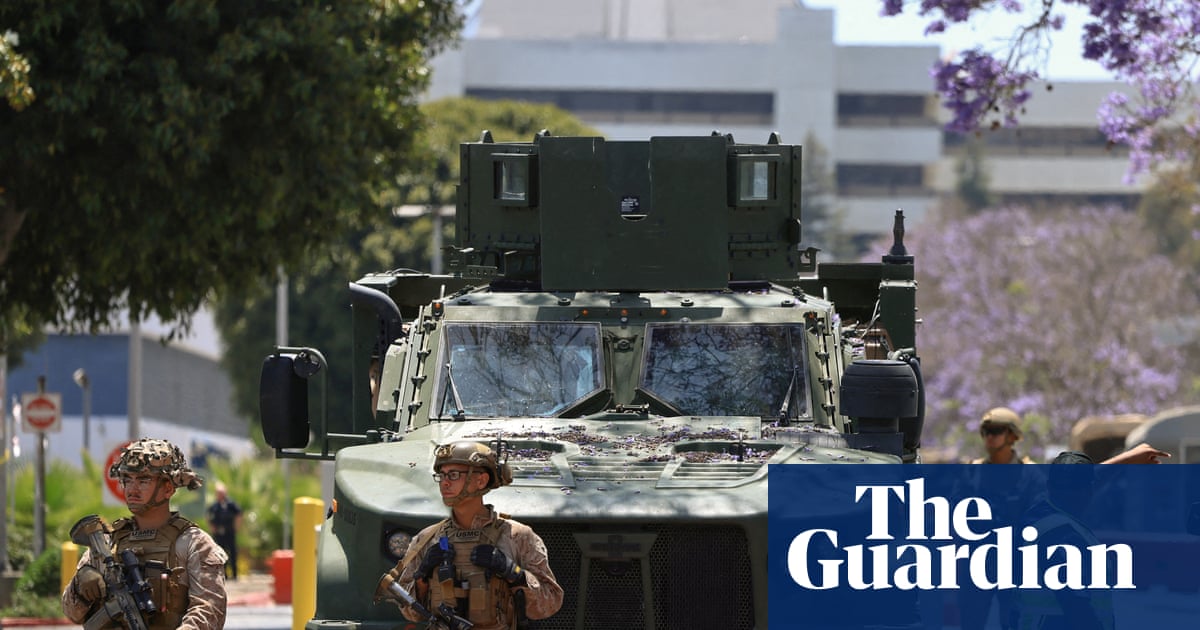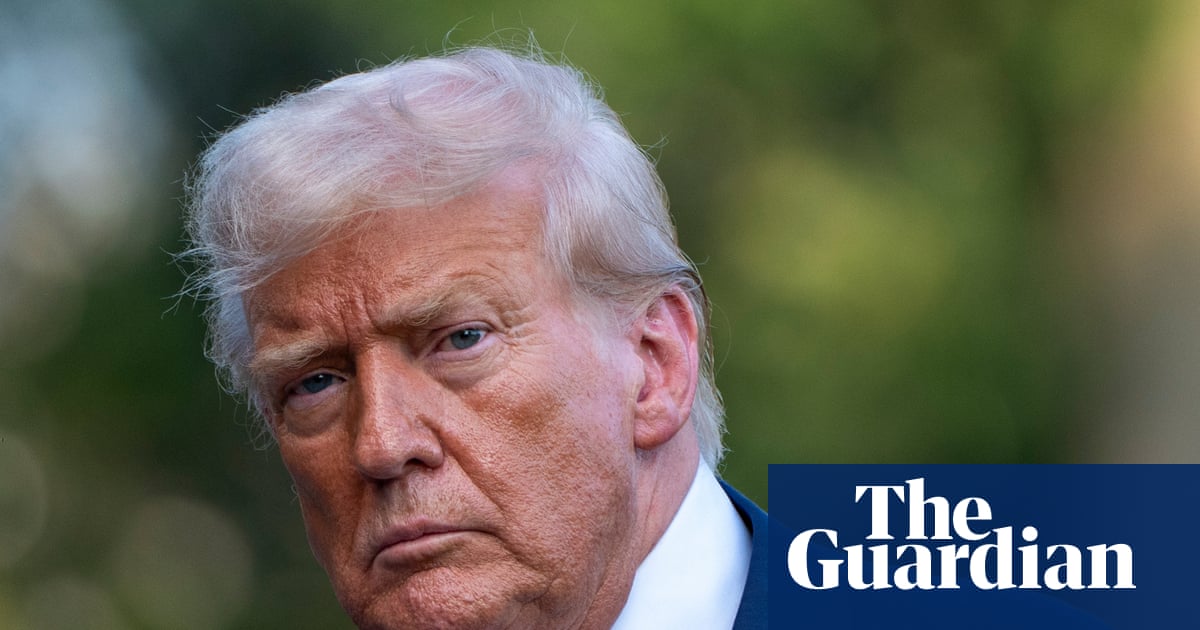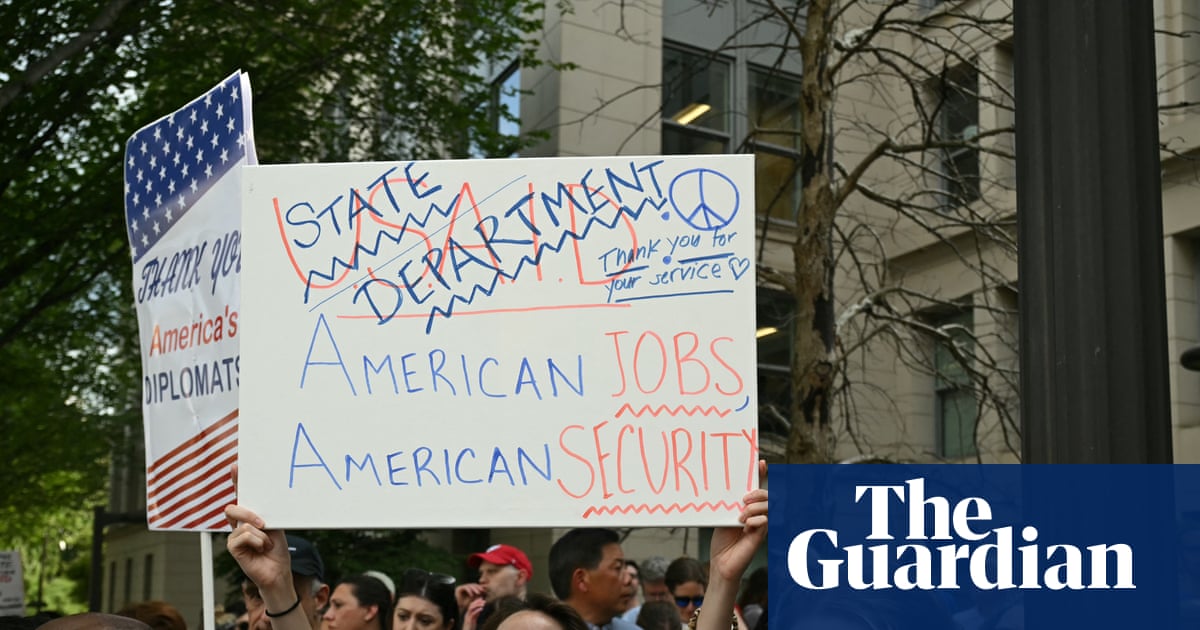Staffers at local NPR and PBS stations around the country were devastated by the news that Congress approved $1.1 billion in federal funding cuts to public media last week, a move that could jeopardize the futures of dozens of stations.
Small, as well as rural, public media stations that heavily rely on federal funding to operate are now bracing for possible staff cuts after Congress approved a package on Thursday that will claw back Corporation for Public Broadcasting funding.
Some stations say they’re being punished over a fight between President Donald Trump and the national public broadcasting organizations that have little relationship to the service smaller outlets offer their communities.
“I think [lawmakers’] decisions were not informed,” said Don Dunlap, president and general manager of KEDT-TV/FM, a public radio and TV station in Corpus Christi, Texas. “We’re there to help people. There are 10 public TV stations in Texas, and we're thinking probably six of them will close down within a year.”
In April, Trump asked Congress to roll back funding for NPR and PBS, which he has long accused of bias against him and other Republicans — a claim both outlets have denied. The public media cuts are one aspect of the Trump administration’s aggressive campaign against media outlets it deems as partisan. Trump has taken legal action against several news organizations, including CBS, ABC, The Wall Street Journal and other outlets over unfavorable coverage.
Several station heads told POLITICO they’ve been preparing for potential cuts since the Trump administration first floated the idea earlier this year. But in the wake of the bill’s passage, they’ve had to put those plans into action.
“We're disappointed, but not surprised, and we've been planning for this scenario for a while,” said Judy Diaz, head of Delmarva Public Media, a group of three NPR stations that serve Maryland’s Delmarva Peninsula. “But yeah, it’s a hit.”
For hundreds of stations, federal money makes up a significant portion of their total funding. According to the Corporation for Public Broadcasting, about 45 percent of all public media stations that received their grants are in rural areas, and nearly half of those rely on CPB for 25 percent or more of their annual budget.
Without federal funding, those stations may be forced into layoffs and programming cuts, if they’re able to survive at all.
According to data obtained by POLITICO, 34 public radio and TV stations receive at least 50 percent of their funding from federal grants. Twelve of those stations are in Alaska.
“We can't fundraise our way out of this. We have to make other decisions,” said Mollie Kabler, executive director of CoastAlaska, which oversees six public radio stations in southern Alaska. “We have to consider ‘what services are we going to give up? What people are we going to let go of? And how can we find a way to collaborate and retain service for Alaskans?’”
KRZA-FM, a public radio station based in Alamosa, Colorado, that broadcasts across southern Colorado and northern New Mexico, relies on the Corporation for Public Broadcasting for 50 percent of its yearly budget. Besides general manager Gerald Rodriguez, the station has one other full-time employee, two part-time workers and a handful of volunteers.
“It's gonna be a huge cut for us,” Rodriguez said. “It's gonna affect us quite a bit, to the point where it could be, like a one-man show at some point where I'm doing everything by myself.”
Public media stations have received CPB grants through the end of the current fiscal year, which ends in September. Many stations are calculating how long they’ll be able to survive once their federal grant funds dry up. For some, it may only be a matter of months.
“The station has built up a war chest that should get us through the next few months,” said Mark Johnson, general manager of KSRQ-FM in Thief River Falls, Minnesota. “Right now, we are making a push on-air and through social media for listener contributions to help us cover the cost of powering our transmitter through December.”
Public media staffers from local affiliates to the national networks have been lobbying Republicans in Congress for weeks in hopes of staving off the cuts. In the end, only four Republicans in both chambers voted against the final version of the package, which also included cuts to foreign aid: Sens. Lisa Murkowski (R-Alaska) and Susan Collins (R-Maine) and Reps. Mike Turner (R-Ohio) and Brian Fitzpatrick (R-Pa.).
Representatives for Senate Majority Leader John Thune did not immediately respond to requests for comment.
A House leadership aide deflected blame for impacts to local public media stations, and said in a statement that the NPR and PBS national organizations should "manage funds wisely and root out waste so rural stations can succeed."
An Office of Management and Budget spokesperson refuted claims that local NPR and PBS affiliates had remained nonpartisan, saying in a statement they had “politicized their own coverage by relying on syndicated programming from their national org.”
“Democratic paper-pushers masquerading as reporters don’t deserve taxpayer subsidies, and NPR and PBS will have to learn to survive on their own,” said White House principal deputy press secretary Harrison Fields. “Unfortunately for them, their only lifeline was taxpayer dollars, and that ended when President Trump was sworn in.”
Scott Smith, general manager of Alleghany Public Radio which broadcasts to three counties on either side of the border of Virginia and West Virginia, said he reached out to Republican lawmakers from both states to try to preserve the 60 percent of his funding that comes from federal grants. Now, he blames Congress for targeting local stations to spite the national NPR and PBS networks.
“They do know that what they were doing was going to hurt us more than it's going to hurt NPR and PBS as a whole. Yet it was still done,” Smith said. “So what conclusion does that bring you to, without any other data to the contrary, that this is political and personal in nature.”
Kabler, who oversees the stations in Alaska, said she meets with Murkowski “a couple times per year.” The senator attempted to introduce an amendment to the Senate bill that would protect funding for local public broadcasting while stripping it from NPR’s and PBS’ national operations, citing employees at KUCB — one of Kabler’s stations — who she said earlier that afternoon had coordinated with local public officials to warn the community of an impending tsunami.
The amendment failed.
The public broadcasting audience in Alaska is “mostly Republicans,” Kabler said. “But our services are not about partisan politics, and the discussion of what people believe about PBS and NPR on the national level, that's not what we do. We're about local news and information.”
Some public media staffers are hoping to take advantage of the grassroots networks used to rally support against the federal cuts to organize political opposition to Republicans who backed the bill. Kurt Mische, president of the PBS station based in Reno, Nevada, said he hopes the impact of gutting local NPR and PBS stations will be a motivating issue for voters in the 2026 midterms.
“I hope that everyone who believes in and supports the mission and vision and values of public broadcasting will keep this in mind when the next congressional election comes up,” Mische said. “And we will help them connect the dots.”

 German (DE)
German (DE)  English (US)
English (US)  Spanish (ES)
Spanish (ES)  French (FR)
French (FR)  Hindi (IN)
Hindi (IN)  Italian (IT)
Italian (IT)  Russian (RU)
Russian (RU) 























Comments